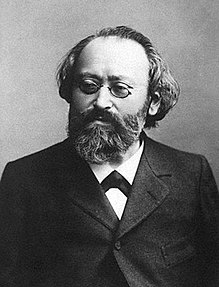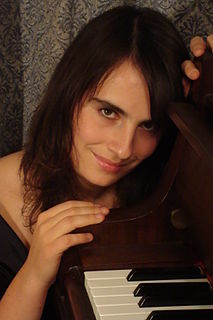Finzi: Cello Concerto, Clarinet Concerto is an album of 1977 and 1979 recordings [1] of works by Gerald Finzi.
Gerald Raphael Finzi was a British composer. Finzi is best known as a choral composer, but also wrote in other genres. Large-scale compositions by Finzi include the cantata Dies natalis for solo voice and string orchestra, and his concertos for cello and clarinet.
The first three tracks on the album are the Concerto for Clarinet and String Orchestra Op. 31, which was recorded in 1977. Performed by John Denman, clarinet, with the New Philharmonia Orchestra led by Bernard Partridge and conducted by Vernon Handley. The second three tracks are the Concerto for Cello and Orchestra Op. 40, recorded in 1979, and performed by Yo-Yo Ma, cello. Accompanying Ma are the Royal Philharmonic Orchestra, led by Barry Griffiths and conducted by Vernon Handley.
Vernon George "Tod" Handley CBE was a British conductor, known in particular for his support of British composers. He was born of a Welsh father and an Irish mother into a musical family in Enfield, London. He acquired the nickname "Tod" because his feet were turned in at his birth, which his father simply summarised: "They toddle". Handley preferred the use of the name "Tod" throughout his life over his given names.

Yo-Yo Ma is a Chinese-American cellist. Born in Paris, he spent his schooling years in New York City and was a child prodigy, performing from the age of four and a half. He graduated from the Juilliard School and Harvard University, and has performed as a soloist with orchestras around the world. He has recorded more than 90 albums and received 19 Grammy Awards.

The Royal Philharmonic Orchestra (RPO), based in London, was formed by Sir Thomas Beecham in 1946. In its early days the orchestra secured profitable recording contracts and important engagements including the Glyndebourne Festival Opera and the concerts of the Royal Philharmonic Society. After Beecham's death in 1961 the orchestra's fortunes declined steeply; it battled for survival until the mid-1960s, when its future was secured after an Arts Council report recommended that it should receive public subsidy; a further crisis arose in the same era when it seemed that the orchestra's right to call itself "Royal" could be withdrawn.
Finzi: Concerto for Clarinet and String Orchestra Op. 31 (29:19)
First movement. Allegro vigoroso (8:53)
Second movement. Adagio ma senza rigore (11:52)
Third movement. Allegro giocoso (8:36)
Finzi: Concerto for Cello and Orchestra Op. 40 (41:06)
First movement. Allegro moderato (16:52)
Second movement. Andante quieto (14:38)
Third movement. Adagio - Allegro giocoso (9:36)
The Cello Concerto in A minor, Op 40, was composed by Gerald Finzi in 1955.
The recordings derive from two Lyrita Recorded Edition LPs that were issued 1976-79. The Clarinet Concerto comes from SRCS 92 where it was alongside the two piano-and-orchestra works already used as fillers for SRCD 239. The Cello Concerto was issued by itself on the LP SRCS 112. [2]

Lyrita is a classical music record label, specializing in the works of British composers.
This edition was released on compact disc on November 30, 2006.





